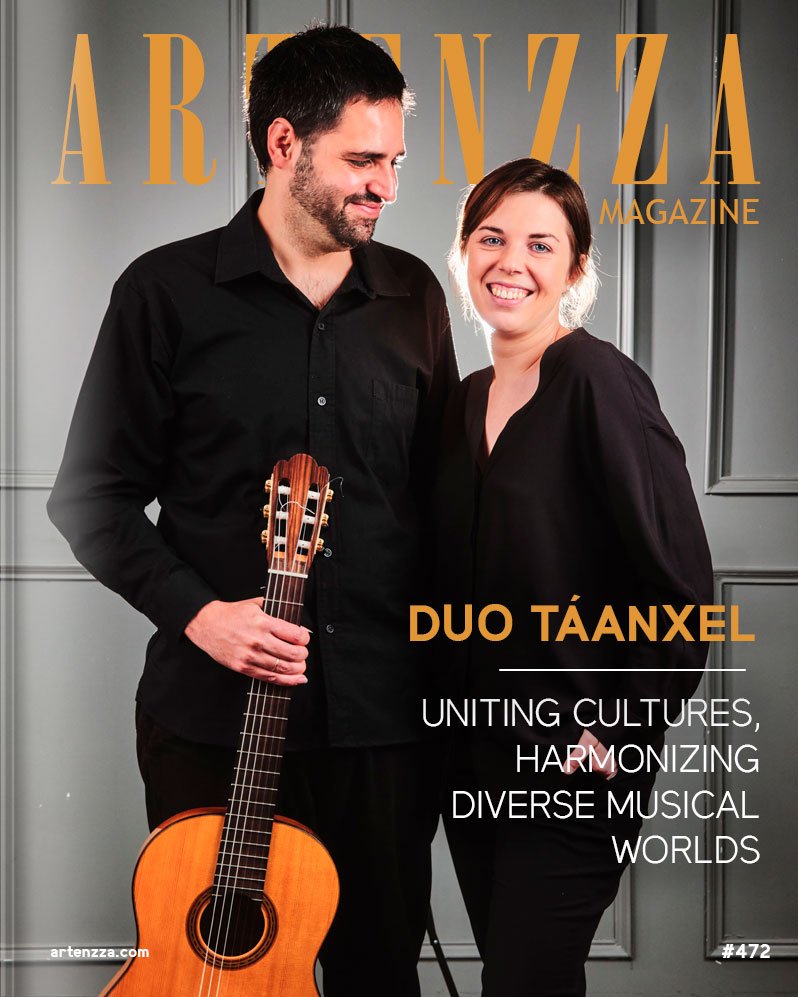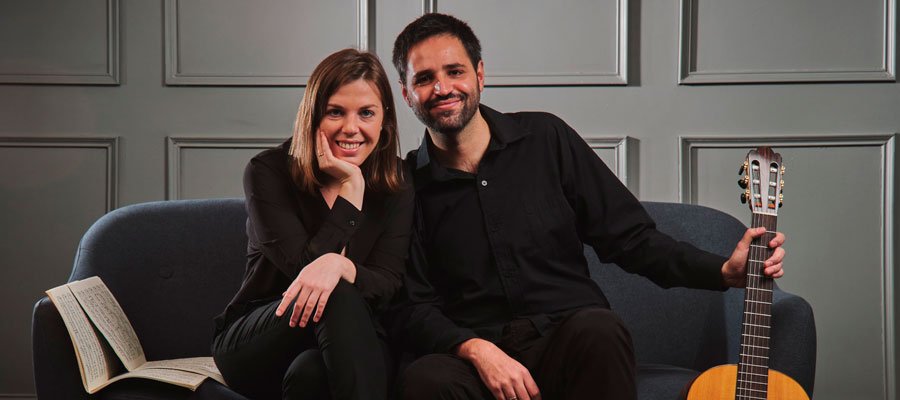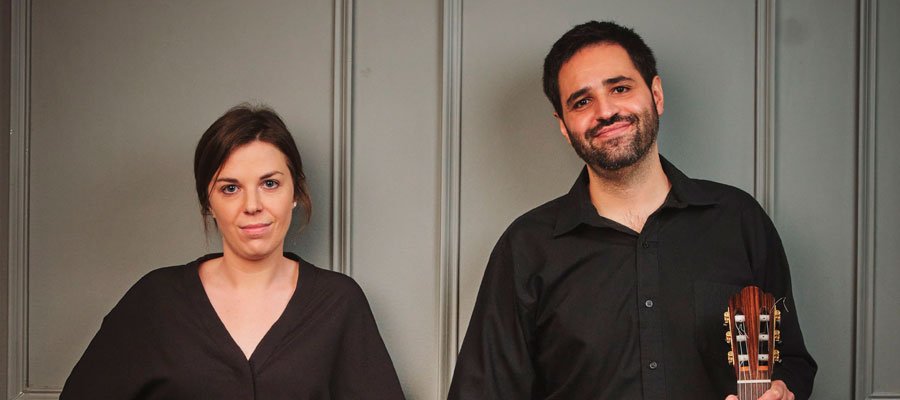Trusted by 500+ artists
Increase your visibility
Trusted by 500+ artists
Increase your visibility

Music Duo: Guitarist & Pianist

Your duo name, Táanxel, is derived from the Mayan word meaning “on the other side,” reflecting your diverse backgrounds. How did you both come to the decision to work together, and how has your cultural diversity influenced your music?
Though not very early, the decision to play together was pretty naturally made. The first occasion the duo collaborated was when Ricardo had to perform a concerto for guitar and orchestra for his end-of-degree examination, so he asked Giedrė to help with the orchestra part. We had some disparities in how we worked because of our different cultural backgrounds, but we soon found that the music itself was always what mattered most to us both, so we figured out how to collaborate.
The guitar and piano are two very different instruments with distinct strengths and limitations. What challenges have you faced in blending these two sounds, and how do you overcome them in your performances?
Probably the hardest thing to do is to get the ideal balance of sound. We encounter it often with various compositions and in various concert settings. We need to find solutions each time we play together; it’s not a one-time thing. It’s interesting and challenging at the same time. Meanwhile, we try not to concentrate too much on those issues. Our primary goal is to communicate and enable both instruments to have a conversation with one another.
Ricardo, your musical journey has taken you from Mexico to Spain and beyond, studying under some of the world’s most renowned guitarists. How have these experiences shaped your approach to both performance and teaching?
Although to varying degrees, every experience modifies who you are. The experience of studying in Spain and France with my teachers was truly amazing and transformed my life beyond simply my musical career. I consider myself extremely fortunate to have had this opportunity.
Giedrė, you’ve had an impressive career, performing in various countries and winning international competitions. How do these experiences influence your interpretation of classical pieces, especially those by composers you have a soft spot for, like J.S. Bach and F. Schubert?
Diverse life experiences always lead to new perspectives and emotions towards a particular piece or interpretation. Also, as you become more mature, you begin to hear music in new ways, which naturally influences how you interpret it. In terms of my musical path, I don’t consider it to be a career. It’s a part of my identity and way of life. Music is just a part of my life; it’s brought me highs and lows.
Your duo has performed in various countries, including Lithuania, Sweden, Poland, Spain, and Mexico. How do audiences in different countries respond to your performances, and do you adapt your repertoire to suit each audience?
These days, piano and guitar formation is still quite uncommon. It’s not an ensemble you hear being performed very often. There are occasions when people attend our concerts without knowing what to expect. Audiences are sometimes taken surprised when they hear those two instruments playing classical music, even though we are always very clear about the kind of music we perform. We are fortunate that after our performances, we get lovely feedback and many are truly surprised that the piano and guitar can work well together. In terms of the pieces we perform, no, we do not adapt our repertoire to certain countries.
Ricardo, you’ve mentioned a passion for uncovering hidden messages within music and bringing them to life in your performances. Can you share an example of a piece where you’ve done this, and explain the message you aimed to convey?
I can think of Mario Castelnuovo-Tedesco’s music as one example. There are several allusions to Mediterranean music, particularly that of Italy and Spain, in his compositions. I’ve been able to comprehend the significance of the meaning it holds for him by learning more about his life. Having come from a Spanish-Italian family, he was obliged to flee to the United States of America due to the impending implementation of fascist racial laws in Italy. Because of this, I find that his music frequently evokes feelings of nostalgia.
Giedrė, your performances are noted for their sentimental lyricism and vivid energy. How do you prepare mentally and emotionally for a performance to ensure that these qualities come through in your music?
I make an effort to thoroughly understand a piece before practicing it by going over it in my mind. While I’m analyzing it, I also attempt to feel the piece’s atmosphere, its spirit and picture what the composer intended to say with it. At the end, the piece’s vibrancy and all these small components come together to give it vitality.
Given your individual achievements and the strong partnership you’ve formed as a duo, how do you balance your personal artistic goals with the goals of Táanxel?
For us, it’s all about playing music that we love. What makes chamber music special is that it allows you to share the beauty of music with others—you’re not the only one experiencing it on stage. Additionally, practicing is very satisfying since it allows you to discuss many points of view and come up with a compromise that will satisfy both integrants. We also enjoy performing on our own when we get the chance as solo musicians.
Both of you have specialized in Spanish repertoire during your studies. How do you approach this repertoire differently when performing together as a duo versus performing solo?
Spanish music and culture in general hold a very unique place in our hearts. It was where we met and studied together. It can’t be any more unique than this because the guitar originated in Spain. Particularly Spanish music is incredibly vivacious, rhytmic, and colorful while being calm and serene. It is multilayered. You must be able to dig deeper and distinguish between those layers if you want to truly comprehend Spanish music.
Looking ahead, what are your aspirations for Táanxel? Are there any specific composers, pieces, or projects you’re particularly excited to explore together in the future?
We are completely open towards new, fulfilling projects which would be interesting to us. We would like to concentrate on our repertoire and expand it more. The biggest aspiration probably would be to be more active musically and never stop going further.

Do you want to know more? You can find some projects below.
Spotify Playlist